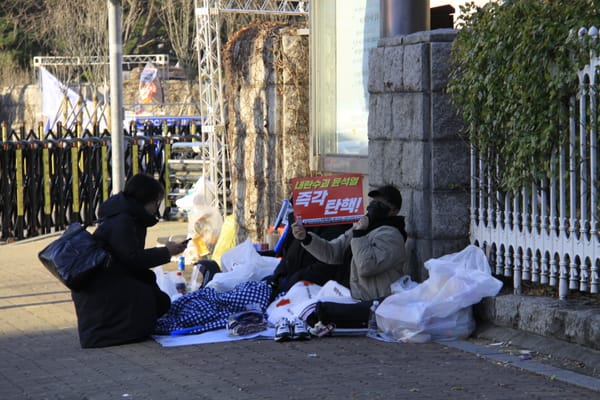Asia Undercovered Round-up: 8 Dec 2022
This week: India's richest corporation tries to silence journalists, protests in Thailand against APEC, and a powerful story about electric vehicles, minerals and deforestation in Indonesia.
Undercovered last week
Adani Group, India’s most powerful corporation led by Asia’s richest man, is known for it’s widespread human rights, labor, and environmental crimes across the country, as it enjoys protection from the government. When journalists like Ravi Nair try to hold them accountable, they get sued for defamation. A sign of just how bad things are getting in Asia’s so-called “largest democracy” (Adani Watch).
Along the Mekong Basin, dams have harmed the local environment, and livelihoods. This article by Tapakson Manpati asks a simple question – can people fight back and halt future development plans before they reaches a tipping point and destroy the river? (HB Stiftung).
Similarly, just to the south, along the shores of Southeast Asia’s most productive lake, Tonle Sap, a fishing lot system has recently been abolished, opening up the lake to the community at large. Jin Sato explores the impacts this has had on resource control and fisheries (IIAS).
Worth Reading: This investigation by Mariko Tsuji for Tansa digs into how apps are gathering photos and videos from users, turning it in sexual content, all without consent, impacting tens of thousands of Japanese women.
The tragedy in Malang, Indonesia has faded from the headlines, but the difficult task – holding the police accountable – remains challenging. In this piece for Indonesia at Melbourne, Siswo Mulyartono explores why ending police violence will be a difficult, perhaps even impossible.
I was in Thailand a few weeks ago, and saw signs everywhere that stated “All Thais welcome APEC.” That obviously was not the case, as there were widespread anti-APEC demonstrations, many focused on local issues including the removal of Prime Minister Prayut Chan-o-cha. Here’s a good recap on what happened from Prachatai.
There weren’t as many protests alongside the G20 in Bali, Indonesia, but locals did have to face restrictions on movements and other freedoms as world leaders gathered on their island. This piece, by Natasya Salim, give voices to Balinese and what it is like to have a global summit take place by your home (ABC Australia).
Electoral Politics
Did you see our subscriber-only News Backgrounder on last month’s elections in Malaysia? Check it out here.
Geopolitics
At some point, this was inevitable – India is seeing its image tarnished in the Islamic world due to derogatory remarks from members of the ruling BJP party and its Hindu majoritarian politics (Hassan Alhasan, East Asia Forum).
This should also tarnish India’s image as a democracy – news has emerged that Myanmar’s junta is being armed by India, who exported more weapons to its neighbor than any other country(Times of India).
Solutions Stories
This story is about how members of the Surabaya Transwomen Association (Perwakos), in Indonesia, worked to fight Covid-19 together with the local government. It shows that gender minorities can be part of the solution to public health challenge, but only if they are accepted and empowered (Irmia Fitriyah, New Mandala).
And on a very different note, in Taiwan, Commonwealth reports on an open source tool called Disfactory, which makes it possible to anonymously report polluting factories, a problem in the countryside, and how wells it’s working so far.
Reporting Done Right
This piece by Antonia Timmerman for Rest of World required six months of reporting. It’s on how Chinese investment into mineral processing for electric vehicle supply chains is ravaging forests and local community livelihoods across Indonesia.
It’s beautifully presented and shows that when global media invests into the time and resources needed to report complex stories, they can have a real impact. Do read, and share it.
Read more about this newsletter. If you like it, please subscribe.
Asia Undercovered: Round-ups and in-depth analysis of the news, events, trends and people changing Asia, but not getting enough attention in the US media.



